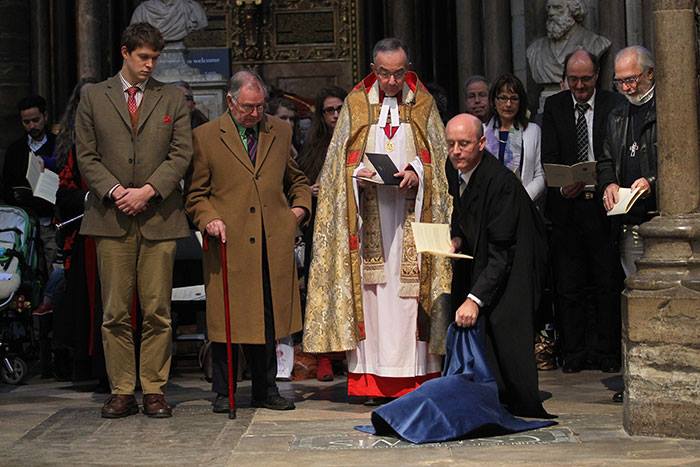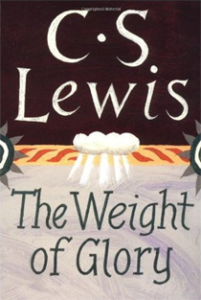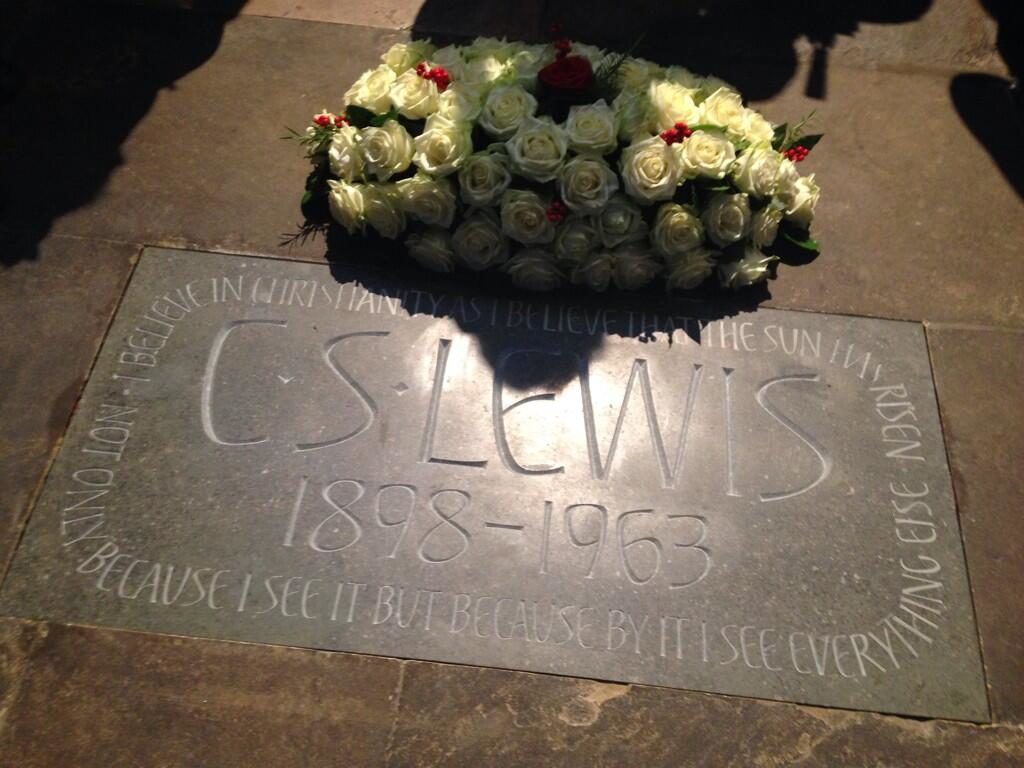Nearly everyone conversant with the writings of C. S. Lewis has heard this famous quote:
I believe in Christianity as I believe that the Sun has risen, not only because I see it, but because by it I see everything else.
It’s such a striking comment that it has found a permanent place on Lewis’s commemorative stone in Westminster’s Poets Corner.

That wonderful insight is the very last sentence of Lewis’s essay called “Is Theology Poetry?” found in the collection The Weight of Glory. For me, the insights leading up to that final great insight are just as striking.
 In that essay, Lewis is carefully debunking the concept of what he calls “universal evolutionism,” which imagines that all things proceed “from small beginnings to great endings, from the rudimentary to the elaborate.”
In that essay, Lewis is carefully debunking the concept of what he calls “universal evolutionism,” which imagines that all things proceed “from small beginnings to great endings, from the rudimentary to the elaborate.”
It seems to be natural in our modern world, Lewis opines, to believe that “morality springs from savage taboos, adult sentiment from infantile sexual maladjustments, thought from instinct, mind from matter, organic from inorganic, cosmos from chaos.” Lewis refers to this as “perhaps the deepest habit of mind in the contemporary world.”
Habits, however, are not necessarily right. They are merely habits. Lewis offers a counter-argument in this manner:
It seems to me immensely unplausible, because it makes the general course of nature so very unlike those parts of nature we can observe. You remember the old puzzle as to whether the owl came from the egg or the egg from the owl. The modern acquiescence in universal evolutionism is a kind of optical illusion, produced by attending exclusively to the owl’s emergence from the egg.
Well, most people might say, what’s wrong with that? Didn’t the owl emerge from that egg? Lewis continues:
We are taught from childhood to notice how the perfect oak grows from the acorn and to forget that the acorn itself was dropped by a perfect oak.
We are reminded constantly that the adult human being was an embryo, never that the life of the embryo came from two adult human beings.
We love to notice that the express engine of today is the descendant of the “Rocket”; we do not equally remember that the “Rocket” springs not from some even more rudimentary engine, but from something much more perfect and complicated than itself—namely, a man of genius.
Conclusion? “The obviousness or naturalness which most people seem to find in the idea of emergent evolution thus seems to be a pure hallucination.”
Lewis then distinguishes science, which tells us a lot about the universe in which we live, from a scientific cosmology that tries to explain everything, even Christianity. That just doesn’t work for Lewis.
If . . . I swallow the scientific cosmology as a whole, then not only can I not fit in Christianity, but I cannot even fit in science. If minds are wholly dependent on brains, and brains on biochemistry, and biochemistry (in the long run) on the meaningless flux of the atoms, I cannot understand how the thought of those minds should have any more significance than the sound of the wind in the trees.
How does one trust one’s own thoughts if they are simply the result of that “meaningless flux of the atoms”?
Lewis then draws his essay to a close by comparing the dreaming world from the waking world.
The waking world is judged more real because it can thus contain the dreaming world; the dreaming world is judged less real because it cannot contain the waking one.
For the same reason I am certain that in passing from the scientific points of view to the theological, I have passed from dream to waking. Christian theology can fit in science, art, morality, and the sub-Christian religions. The scientific point of view cannot fit in any of these things, not even science itself.
And this then brings us back to where we started.
I believe in Christianity as I believe that the Sun has risen, not only because I see it, but because by it I see everything else.
Yes, those wonderful words can stand by themselves, but they take on even greater significance when we understand the greater context in which Lewis writes them.

